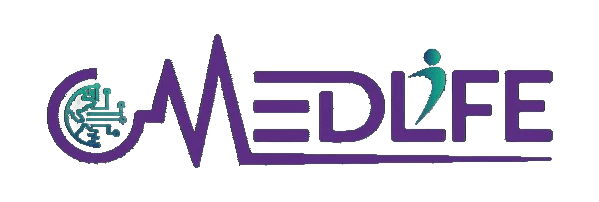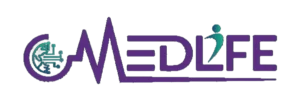Medical coding is a fundamental component of the healthcare system, bridging clinical care and administrative processes. By translating patient diagnoses, treatments, and services into standardized codes, it ensures that medical records are precise, billing is accurate, and healthcare analytics are actionable. Whether for billing insurance, maintaining detailed records, or analyzing healthcare trends, medical coding is indispensable.
What Is Medical Coding?
Medical coding is the process of converting healthcare diagnoses, procedures, medical services, and equipment into standardized alphanumeric codes. These codes are extracted from various medical records, such as physician notes, lab results, and imaging reports. Each code corresponds to a specific detail of the patient’s care, enabling consistent communication and documentation across the healthcare industry.
For example, a routine check-up, a diagnosis of flu, and any prescribed medications would all be assigned unique codes. These codes ensure accurate billing, compliance with regulations, and efficient data tracking.
Why Is Medical Coding Important?
Medical coding is critical for several reasons. It ensures proper reimbursement for healthcare providers by accurately documenting patient services. It facilitates communication between providers, insurance companies, and regulatory bodies, creating a standardized language that reduces errors and misinterpretations. Coding also plays a vital role in healthcare analytics, providing data that informs policy decisions, tracks public health trends, and improves patient care.
The American Medical Association reports that coding errors contribute to up to 80% of claim denials, demonstrating how essential precision is in the process.
How Medical Coding Works
Medical coding involves a detailed and systematic process:
- Review Medical Records: Coders begin by examining patient records, which include physician notes, test results, and imaging studies.
- Identify Key Details: The coder identifies the primary diagnosis, treatments, and any additional services provided.
- Assign Codes: Using coding manuals or specialized software, the coder assigns the appropriate codes from standardized code sets.
- Ensure Accuracy: Coders double-check their work to avoid errors that could lead to denied claims or compliance issues.
- Enter Codes: Finally, the codes are entered into the healthcare provider’s billing system and patient records, ensuring accurate claims and documentation.
Accurate documentation is crucial, as even small errors can lead to claim denials or financial losses.
Types of Medical Codes
Several coding systems are used in healthcare, each with a specific purpose:
- ICD (International Classification of Diseases): These codes classify diagnoses, symptoms, and conditions.
- CPT (Current Procedural Terminology): CPT codes describe medical, surgical, and diagnostic procedures.
- HCPCS (Healthcare Common Procedure Coding System): These codes capture services, supplies, and equipment not included in CPT codes.
- DRG (Diagnosis-Related Groups): DRG codes categorize hospitalization costs and determine reimbursements.
Each system ensures consistency in documentation and supports seamless communication across healthcare providers and insurers.
The Role of a Medical Coder
Medical coders serve as the link between patient care and administrative processes. Their responsibilities include:
- Reviewing medical records to extract relevant information.
- Assigning precise codes for diagnoses, treatments, and procedures.
- Ensuring compliance with coding guidelines and regulations.
- Entering codes into billing and record-keeping systems.
Coders work in diverse settings, including hospitals, outpatient clinics, insurance companies, and government agencies. Many also work remotely, offering flexibility in their roles.
Challenges in Medical Coding
Medical coding is not without its challenges. Coders must stay updated with frequent updates to coding systems and healthcare regulations. They must also navigate complex cases involving multiple diagnoses and treatments, where accurate documentation is critical. Errors in coding can lead to claim denials, coding audits, or financial penalties, underscoring the high stakes of the profession.
How Technology Is Transforming Medical Coding
Advancements in technology are revolutionizing medical coding. Automated tools and artificial intelligence (AI) are streamlining the process, reducing the likelihood of errors, and speeding up claim submissions. However, human expertise remains essential for interpreting nuanced medical records and ensuring compliance with intricate regulations. Studies show that organizations using AI-driven coding tools experience up to a 30% reduction in claim denials, demonstrating the potential of technology to enhance accuracy and efficiency.
Medical Coding vs. Medical Billing
While closely related, medical coding and billing are distinct processes. Medical coding involves translating patient care into standardized codes, while billing uses those codes to prepare and submit insurance claims. Billers ensure that healthcare providers are reimbursed for their services and manage follow-ups on unpaid claims. Together, these processes ensure smooth financial operations in healthcare.
Simplifying Medical Coding for Healthcare Providers
Accurate and efficient coding is essential for reducing administrative burdens, ensuring timely reimbursements, and supporting quality care. To simplify the process:
- Invest in ongoing training to stay updated on changes in coding systems.
- Use technology, such as coding software or AI tools, to enhance accuracy.
- Consider outsourcing to professional coding services for expertise and compliance.
Final Thoughts
Medical coding is a vital aspect of the healthcare system that ensures accurate documentation, compliance, and efficient financial operations. By understanding and prioritizing accurate coding, healthcare providers can avoid costly errors, improve cash flow, and deliver better care. Whether you choose to manage coding in-house or outsource it to experts, investing in accuracy and efficiency can make a significant difference in both patient outcomes and operational success.


